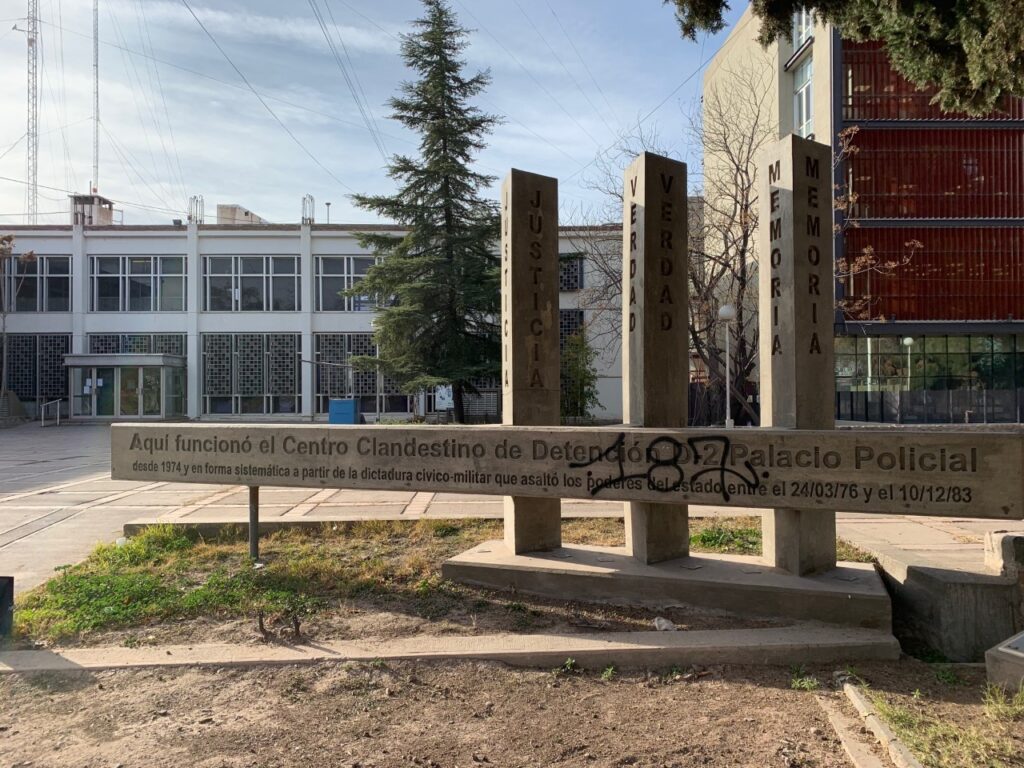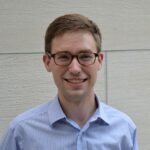Minds of the Movement
An ICNC blog on the people and power of civil resistance
by Pearce EdwardsAugust 13, 2020
The global anti-nuclear movement—particularly relevant this month during the 75th anniversary of the Hiroshima and Nagasaki bombings—received renewed attention last year, when a court convicted seven Catholic activists for their nonviolent direct action against the Kings Bay nuclear submarine base in the U.S. state of Georgia. The direct action, described as a “prophetic statement,” sprang from a peace movement in the Catholic Church that rejects the construction and maintenance of nuclear weapons. Last month, the United for Peace and Justice anti-nuclear coalition called the direct action an “urgent warning” for people concerned about the prospect of nuclear war.
As I’ve discovered through my dissertation research, religious groups in fact interact with civil resistance movements in an array of ways, from explicit participation such as the example above, to implicit support as a third-party ally—and quite often, both simultaneously. As this blog post illustrates, religious groups energize movements with their resources and influence, bringing with them rich traditions of moral nonviolence and making movements more resilient in the face of opposition. These groups’ moral nonviolence—a belief in the sacredness of nonviolent action and in the impermissibility of violence—advances the goals of broader movements that use nonviolent action as a strategic resistance method.

One of the detention centers in use during Argentina's Dirty War. Source: Author.
How does this interaction play out in more concrete terms? I can speak on at least one important historical case, which is the subject of my research: Argentina during its 1976-1983 Dirty War. During this period of brutal repression at the hands of a military dictatorship, a civil resistance movement took to the streets in opposition to the military’s violation of basic human rights. Groups such as the Mothers of the Plaza de Mayo and the Peace and Justice Service composed the movement.
A segment of the Catholic Church also contributed to the movement: My archival research revealed that about 30% of Catholic bishops made statements or took actions (discussed below) indicating opposition to the Dirty War, while about 9% of clergy were involved in the Movement of Priests for the Third World, an Argentine group opposed to social and economic injustices under military rule. Women and men in some Catholic religious orders in Argentina also publicly opposed repression.
Catholic leaders in Argentina engaged in diverse tactics, blurring the (perhaps inconsequential) lines between movement participant and movement ally. Bishops who opposed the Dirty War used their platforms to demand information from the government about victims of repression, visited political prisoners, and sheltered potential victims of repression from the government. Bishops also joined or co-founded human rights organizations, participated in mass marches, presented petitions to government officials, and signed open letters in support of human rights. Most importantly, my research finds that these efforts led to less repression: Bishops who opposed the Dirty War likely saved the lives of hundreds during the dictatorship.
Religious groups have also helped civil resistance and human rights movements in other times and places. The Catholic Church in Poland during the Solidarity movement of the 1980s became a place for dissidents to hide and for movement resources to be stored and distributed secretly across the country. Recent research has found that Catholic parishes in the Philippines likely reduced police killings in that country’s ongoing drug war. Religious groups in rural Mexico formed associations that motivated participation in indigenous protest movements in the 1990s. As Dr. Consuelo Amat’s research explores, the Catholic Church protected activists from repression across Latin America.
This research on religious groups and civil resistance offers two solid takeaways for activists today. First, religious groups possess valuable information. Religious leaders have close ties with local communities and can thus learn about and track social problems in their area, as well as identify people at risk of violence. In cases such as Argentina and the Philippines, religious leaders created lists of victims of violence which later proved invaluable to activists, who sought to reveal the truth about repression, publicize human rights violations domestically and internationally, and achieve justice for victims.
Second, religious groups can protect movements from government repression. This protection may be physical, in which religious officials offer places of refuge to the vulnerable or signal their defense of victims by visiting them in prison.
Religious groups also offer moral protection. As co-founder of the Mexican Peace and Justice Service Pietro Ameglio said at a 2016 conference on Catholic nonviolence:
“Churches have a very big role [in stopping violence] because there is a tool in nonviolent struggle that is moral reserve—the moral authority of certain social actors that they are able to use as leverage in the service of the societal values that their moral authority represents. Churches have a social force that many of us don’t have.”
For protection, then, activists can use religious groups’ physical sites for organizing, and also encourage religious groups to advocate on their behalf. As a result, it becomes harder for the government to use violence against activists because it would look particularly cruel to the general population and international observers.
Religious groups' involvement in nonviolent movements, during Argentina’s Dirty War and elsewhere, suggests a common lesson: Depending on a movement’s local context, it could be well worth the effort to identify religious groups that would be sympathetic to their cause—and to reach out and establish a relationship. Perhaps movements would have something to offer religious groups in return as well, such as publicizing the groups’ contributions to nonviolent resistance, engaging with the groups about their underlying beliefs in moral nonviolence, and reinforcing the groups' reputation as engaged local actors for justice.

Pearce Edwards
Pearce Edwards is a Ph.D. candidate in Political Science at Emory University in Atlanta, Georgia, USA. His research focuses on repression and resistance in authoritarian regimes. His research has been published in the British Journal of Political Science.
Read More